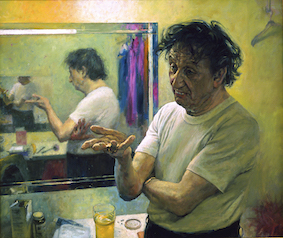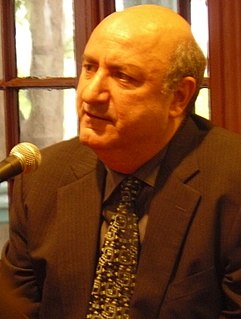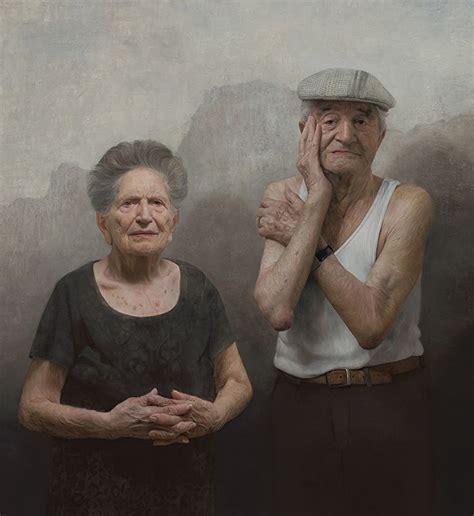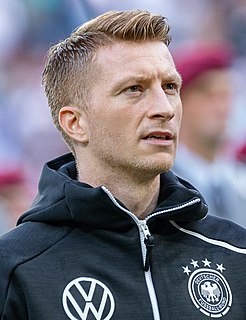A Quote by David Cobley
As a boy, I used to look at reproductions of Rembrandt's portraits... the people in his paintings were so real I felt I knew them... It is his empathy for the sitter, combined with his enjoyment and dexerity in handling paint that captured my imagination then, and is what I am striving for still.
Related Quotes
That’s how Ptolemy imagined the disposition of his memories, his thoughts: they were still his, still in the range of his thinking, but they were, many and most of them, locked on the other side a closed door that he’s lost the key for. So his memory became like secrets held away from his own mind. But these secrets were noisy things; they babbled and muttered behind the door, and so if he listened closely he might catch a snatch of something he once knew well.
The barbarians of Germany had felt, and still dreaded, the arms of the young Caesar; his soldiers were the companions of his victory; the grateful provincials enjoyed the blessings of his reign; but the favourites, who had opposed his elevation, were offended by his virtues; and they justly considered the friend of the people as the enemy of the court.
All Mattia saw was a shadow moving toward him. He instinctively closed his eyes and then felt Alice’s hot mouth on his, her tears on his cheek, or maybe they weren’t hers, and finally her hands, so light, holding his head still and catching all his thoughts and imprisoning them there, in the space that no longer existed between them.
To my way of thinking, the concept drawings that Rembrandt did, the drawings he made that he used to model his artists, to work out the compositions of his paintings: those are cartoons. Look at his sketch for the return of the prodigal son. The expression on the angry younger brother's face. The head is down; the eyebrow is just one curved line over the eyes. It communicates in a very shorthand way. It's beautiful, expressive, and, in a peculiar way, it's more powerful than the kind of stilted, formalized expression in the final painting.
For a second, he was still, blinking. Then he shook off all the blankets and coats so that his arms were free and he wrapped them around me as tightly as he could. I felt him shuddering, shuddering against me as he buried his face in my hair. I said, uselessly, "Sam, don't go." Sam cupped my face in his hands and looked me in the eyes. His eyes were yellow, sad, wolf, mine. "These stay the same. Remember that when you look at me. Remember it's me. Please."" — Grace and Sam (Shiver)
I sort of feel that the role of a portrait in society is to represent the sitters, we see paintings of Shakespeare and we believe that it is what he looked like, well maybe a little older, fatter and with a higher hairline. I guess it would be cool if the portraits that were painted really did look like the sitter or expressed some sort of emotion that gave the viewers in the future a sense of the sitter's pathos at the time it was painted.
He stepped toward her, and her heart just ached from it. His face was so handsome, and so dear, and so perfectly wonderfully familiar. She knew the slope of his cheeks, and the exact shade of his eys, brownish near the iris, melting into green at the edge. And his mouth-she knew that mouth, the look of it, the feel of it. She knew his smile, and she knew his frown, and she knew- she knew far to much.
My idol was always Tomas Rosicky. He used to be phenomenal. He had such a good eye for an opening and knew where his team-mates were and he was so quick. I copied everything about him – right down to his sweatbands. [] he would be one of the world’s best players. Jack Wilshere is a perfect player. Boy, he’s good. He’s so quick and skillful with the ball at his feet.
At one point, for example, [Donald Trump] argued that he knew much more than military leaders about the pursuit and defeat of ISIS. His assuredness of his own correctness seems also rooted in arrogance reflecting his fundamental insecurity. This insecurity and his belief in his own rightness, when combined with his success at making money, leads him to be self-reliant in his decision-making, which could result in his taking risks with threatening or using nuclear weapons.







































